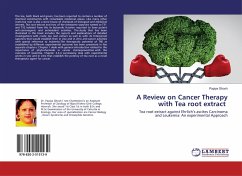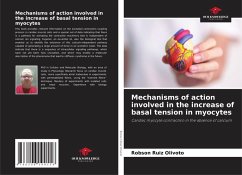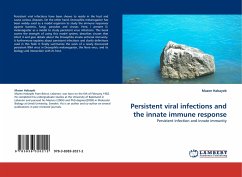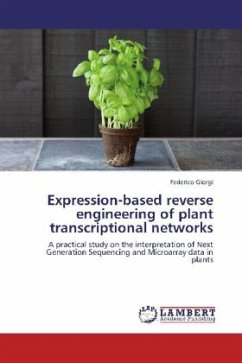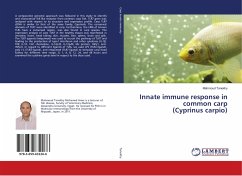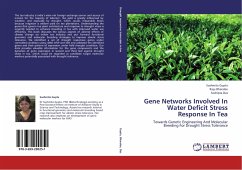
Gene Networks Involved In Water Deficit Stress Response In Tea
Towards Genetic Engineering And Molecular Breeding For Drought Stress Tolerance
Versandkostenfrei!
Versandfertig in 6-10 Tagen
52,99 €
inkl. MwSt.

PAYBACK Punkte
26 °P sammeln!
The tea industry is India s main net foreign exchange earner and source of income for the majority of laborers . Tea yield is greatly influenced by weather, and especially by drought, which causes irreparable losses because irrigation is seldom used on tea plantations. Understanding the genes that govern tea plant architecture and response to drought stress is urgently needed to enhance breeding in tea with improved water use efficiency. This book discusses the various aspects of adverse effects of climate change on Indian tea industry and put forward functional genomics and molecular breeding...
The tea industry is India s main net foreign exchange earner and source of income for the majority of laborers . Tea yield is greatly influenced by weather, and especially by drought, which causes irreparable losses because irrigation is seldom used on tea plantations. Understanding the genes that govern tea plant architecture and response to drought stress is urgently needed to enhance breeding in tea with improved water use efficiency. This book discusses the various aspects of adverse effects of climate change on Indian tea industry and put forward functional genomics and molecular breeding strategies to improve abiotic stress tolerance. We identified a set of drought responsive genes under controlled condition using cDNA AFLP and SSH and validated the identified genes and their pattern of expression under field drought condition. Our data provides valuable information for the gene components and the dynamics of gene expression in second and third leaf against drought stress in tea, which could be regarded as candidate target molecular markers potentially associated with drought tolerance.




